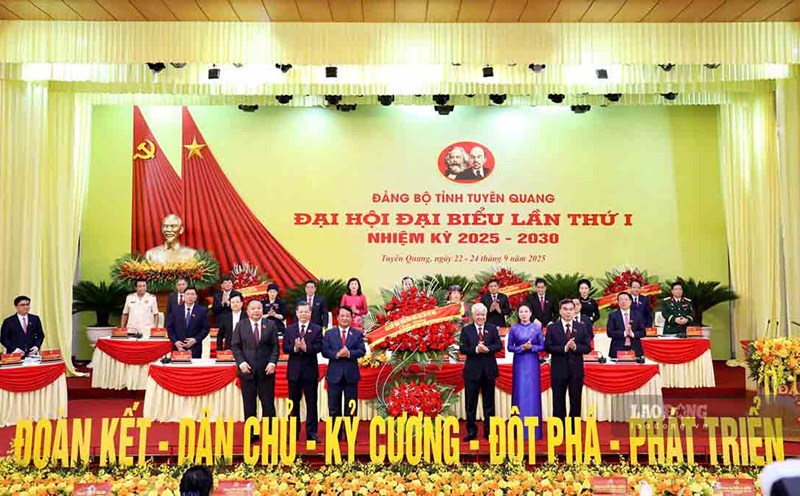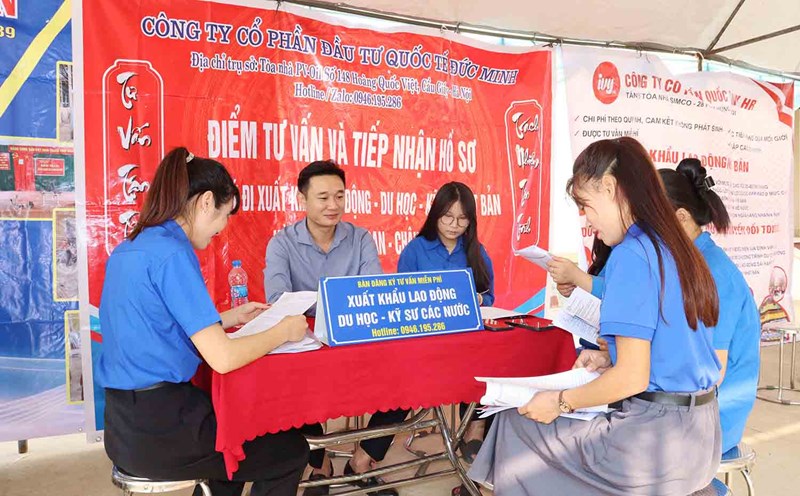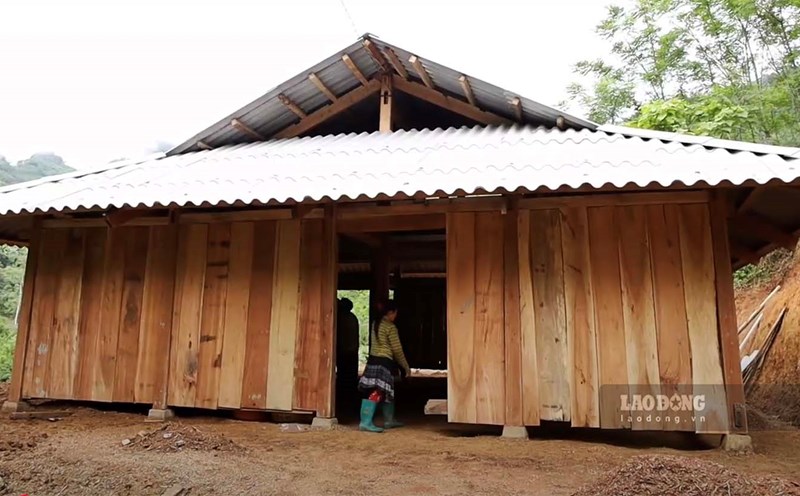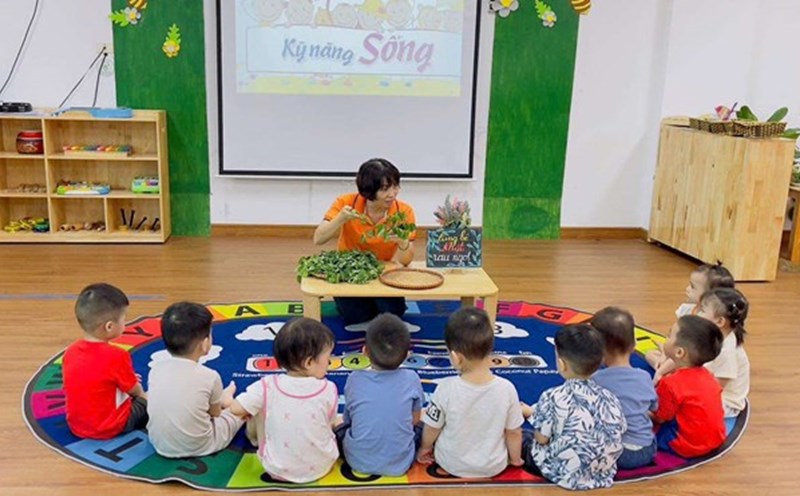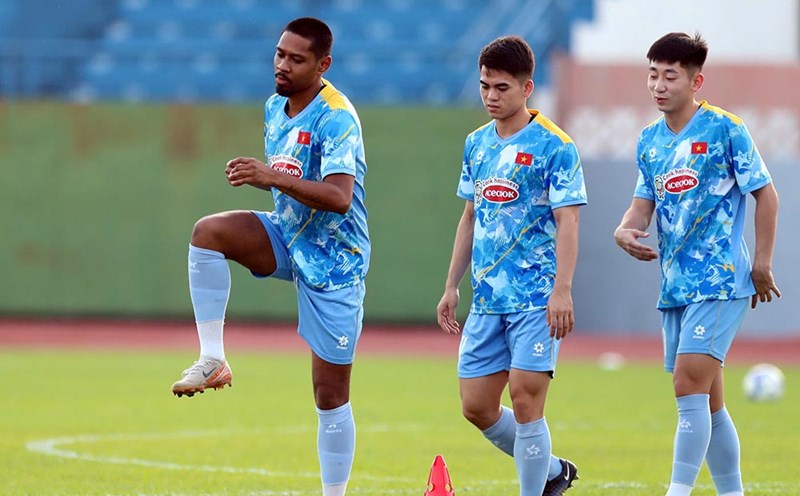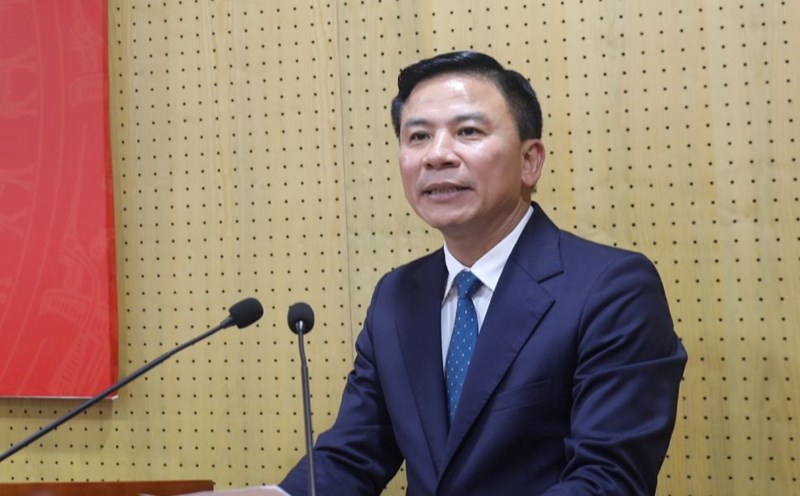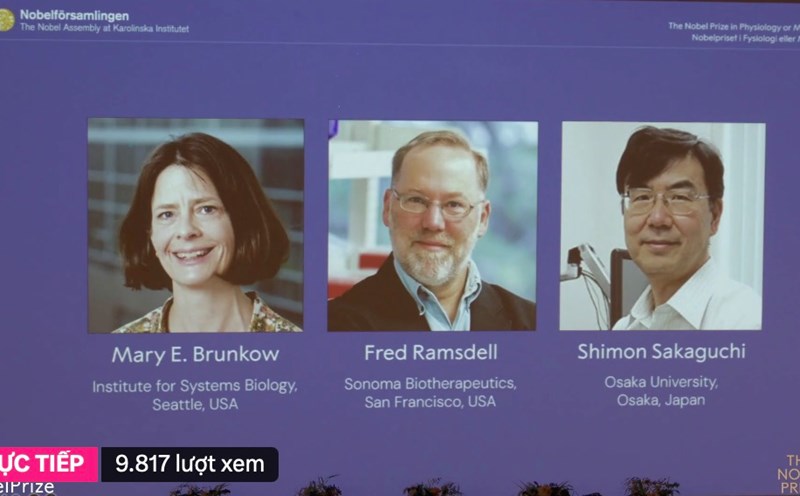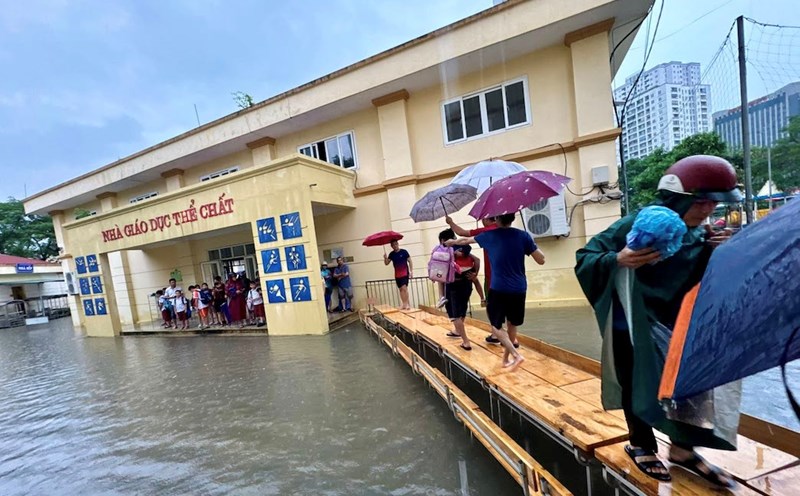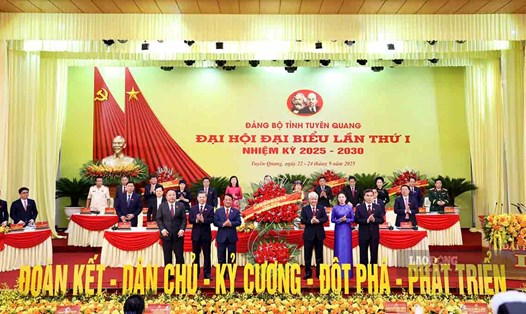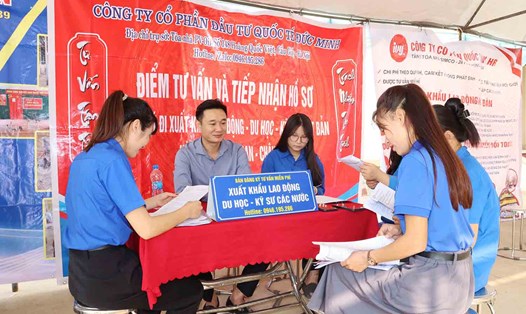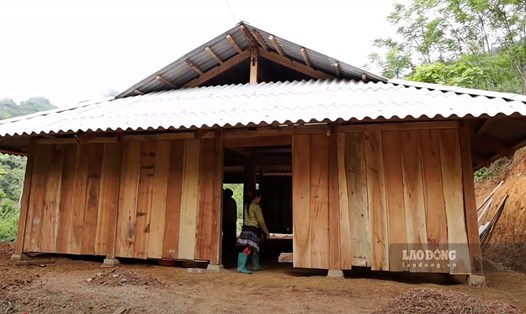Mr. Ly Van Mien's family is one of the poor households in particularly difficult circumstances in Yen Phu commune (Tuyen Quang). For many years, Mr. Mien has dreamed of a solid house, safe from heavy rain and strong winds. Recently, with the support of the state and the cooperation and contribution of Mr. Mien's community, he has a new house.
"Because I am so poor and do not have enough to eat, I dare not dream of building a house. Now that the state has supported poor households with money, the government and the people have contributed their efforts to help, I have a solid house. With a house, the family can work with peace of mind to escape poverty," Mr. Mien shared.
Tuyen Quang province has identified that in order for poverty reduction to be truly sustainable, it is necessary to implement it in all aspects and fields with practical support policies such as housing support for poor households, health insurance, legal aid, electricity bill policies, preferential credit, support for poor household students and specific policies for particularly disadvantaged areas.
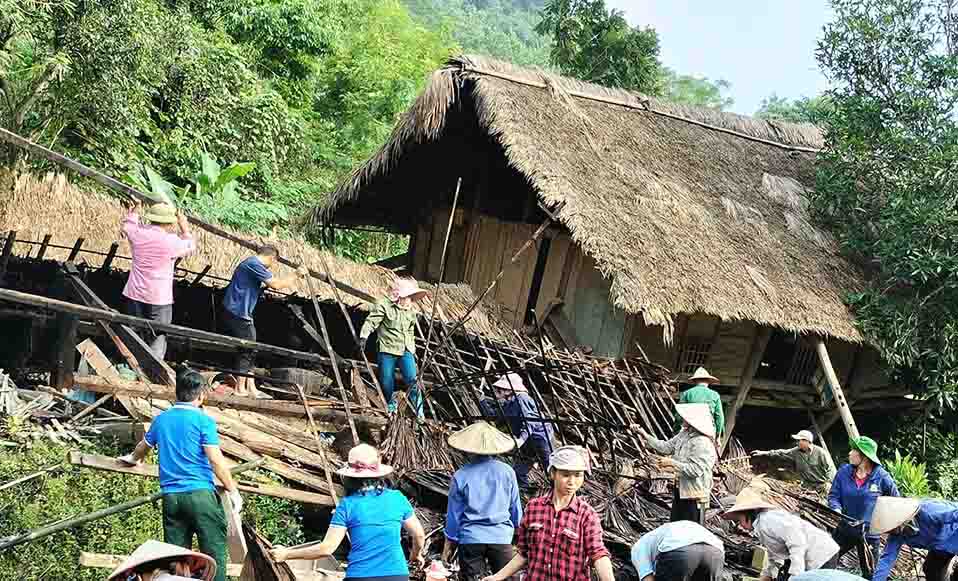
According to the report of the Department of Agriculture and Environment of Tuyen Quang province, sustainable poverty reduction in the area has achieved many positive results in recent times.
In particular, in the old Tuyen Quang province, the period 2021 - 2024 is calculated according to the poverty standard, the poverty rate decreased from 23.45% to 10.19%, down 13.26% compared to the beginning of the period, an average decrease of 4.42%/year, exceeding the set plan.
In the old Ha Giang province, the number of multidimensional poor households at the end of 2024 was 69,740 households (36.35%), down 11,711 households, equivalent to a decrease of 6.26% compared to the previous year, also exceeding the set target. The result is a combination of infrastructure investment, housing support, social policies and sustainable livelihood programs for the poor to strive to escape poverty.
Mr. Pham Van Tu - Secretary of Meo Vac Commune Party Committee said that in addition to establishing and perfecting the Steering Committee, the commune has assigned members of the Standing Committee and the Commune Party Executive Committee to be in charge of each village and each poor household to closely follow, guide, and promptly remove difficulties and obstacles during implementation.
"The locality has determined that to achieve sustainable poverty reduction, it is necessary to focus on clarifying the causes of poverty to have effective support plans. The motto of "hands-on guiding work" and giving "fishing rods" so that people have a livelihood to strive to rise up", the Secretary of the Meo Vac Commune Party Committee shared.
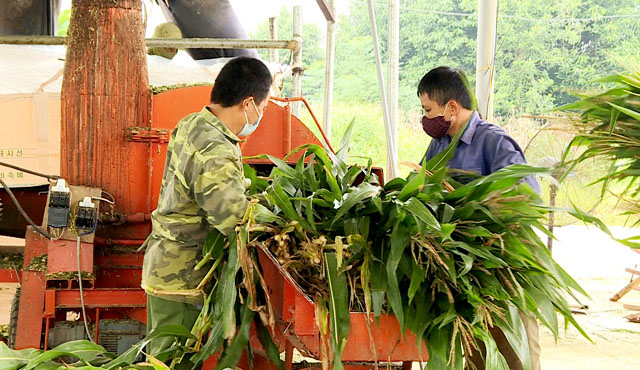
To move from temporary to sustainable poverty reduction, Tuyen Quang province has determined to build a comprehensive strategy, integrate many policies, and synchronously deploy solutions, including recommending reviewing and consolidating documents, reducing overlap between programs.
At the same time, improve the quality of professional training on project management, accounting, supervision, and community mobilization for commune officials, applying short-term training plans close to reality. Flexibly allocate resources, call for social resources.
Ms. Vuong Ngoc Ha - Vice Chairman of Tuyen Quang Provincial People's Committee said that in the coming time, the province will support the conversion of crops and livestock appropriately, connect value chains, and encourage the form of cooperatives and social enterprises. Create conditions for people to borrow preferential capital, agricultural insurance and business skills training programs.
"Tuyen Quang province focuses on strengthening a social security network for households prone to falling back into poverty, combining financial consulting services, family planning and nutrition. Mobilize and propagate to change the mindset of relying on support and encouraging self-reliance to escape poverty sustainably," said Ms. Ha.
In the period of 2026 - 2030, Tuyen Quang province proposed that the Central Government continue to implement a number of key component projects such as supporting funding for projects related to the development of socio-economic infrastructure in poor communes. Diversify livelihoods and develop poverty reduction models; develop vocational education and sustainable employment.

